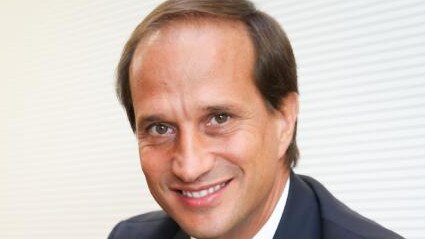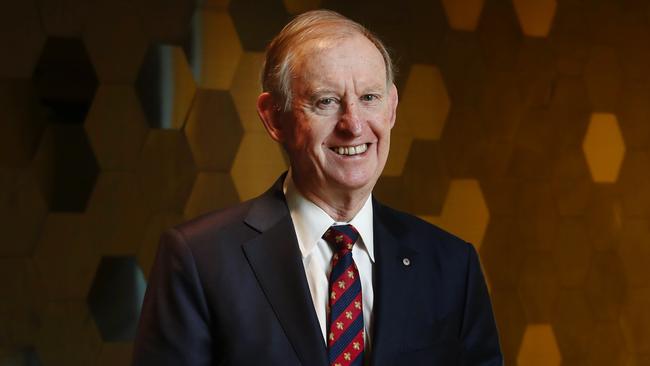Why AMP didn’t appoint an Australian as its new CEO
AMP chose a CEO free of the royal commission taint and with international experience as a “change agent” after the GFC.

AMP chairman David Murray has admitted the royal commission and the expected regulatory response from it had a significant influence on its appointment as CEO of international private banking executive Francesco De Ferrari.
Mr Murray said revelations at the hearings into finance industry misconduct had made it more difficult for the company to appoint a local executive and retain credibility with its investors.
And the prospect of Commissioner Kenneth Hayne’s inquiry defining a new business model for the superannuation and wealth management industries heightened the appeal of executives from other countries who had already been through that change.
Mr De Ferrari, named today as AMP’s next chief executive, has spent the last 17 years with Credit Suisse, where he was head of the Swiss bank’s South East Asia division and the boss of its Asia Pacific private bank.
But he had previously been in charge of the bank’s Italian operation as it emerged from the global financial crisis and the subsequent implementation of sweeping European Union overhauls of banking and financial services regulation.
The Italian and Swiss citizen had also been chosen to deal with Credit Suisse’s response to regulatory issues in the US after the global financial crisis.
Mr Murray said those experiences, combined with a tenure in Asia where Mr De Ferrari had delivered consistent growth, made him stand out from a range of “change agents” that the bank had considered for the top job.
“Credibility with our investors was harder to find given what has been reported about the royal commission,” Mr Murray said when asked about why a local executive had not been chosen.
“It is harder for us in those circumstances.”
But he said there was a “deeper issue” in that other countries had made more dramatic changes as a result of the global financial crisis than Australia had.
“If we could find executives who had actually worked through those changes then they — in working in Australia — wouldn’t be as attached to the past as local people might be.”
Mr Murray said Mr De Ferrari had been hired to be a change agent at a time when the industry faces a likely overhaul as a result of the royal commission hearings and the exit of several of the big banks from wealth management.

AMP’s reputation has been shredded at the royal commission with revelations of misleading conduct with the regulator over charging fees for no service costing the job of its chairman, chief executive, general counsel and three other directors.
Its business model has also been seen to be under threat because of revelations that it and other businesses had not resolved conflicts of interest in favour of clients, rather than the company.
But Mr Murray said the prospect of changes to vertical integration appeared to be receding with recent submissions from Treasury and the Australian Securities and Investments Commission indicating it may not be the key issue.
“It’s the way you design, manage and sell product that really matters,” Mr Murray said.
“So that is looking a little more encouraging than it was at one stage.”
He said that in coming up with a new model for running superannuation and wealth management the royal commission had to work its way through “old cultures” that started out in life insurance companies with agents as the sales force.
“So it’s available to the commission to come up with an entirely different model. Having said that I don’t believe the commission is in a place where they can disrupt everybody’s businesses on day one.
“I think the competitive game will be who can adapt their business model quickest to a new model that the royal commission comes up with for retail industry super and regulation.
“The sort of change agent that we have appointed gives us confidence that we will adapt and the fact that other people are quitting the market gives us confidence that we can relaunch the AMP brand and business and do well.”



